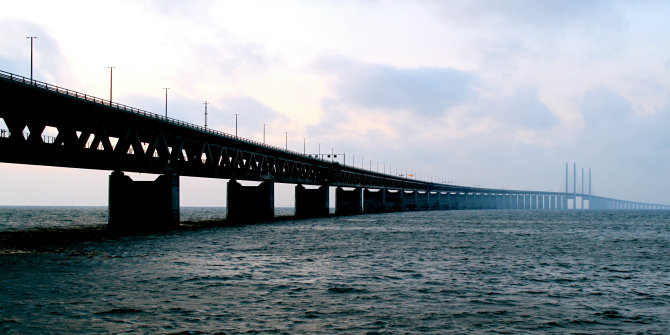 Only six weeks after parliamentary elections that saw the ruling Republican Party of Armenia retain its power, a municipal election in the Armenian capital Yerevan resulted in an even larger victory for the incumbent party. But as Richard Giragosian writes, the election result did little to obscure serious shortcomings in the voting process, with allegations of vote buying and interference by the ruling Republicans. And more troubling, the victory itself may have damaged the image and standing of the Republican Party, amid renewed concerns over the apparent risk of one-party rule in Armenia.
Only six weeks after parliamentary elections that saw the ruling Republican Party of Armenia retain its power, a municipal election in the Armenian capital Yerevan resulted in an even larger victory for the incumbent party. But as Richard Giragosian writes, the election result did little to obscure serious shortcomings in the voting process, with allegations of vote buying and interference by the ruling Republicans. And more troubling, the victory itself may have damaged the image and standing of the Republican Party, amid renewed concerns over the apparent risk of one-party rule in Armenia.

A view of Armenia’s capital Yerevan from the Mother Armenia monument. Credits: David Sullivan (public domain)
For many Armenian voters, after a heated parliamentary election in early April, the 14 May municipal election in the capital Yerevan was a bit of a letdown. The largely anti-climatic nature of the municipal election was also evident in the low turnout, as a mere 41 percent of eligible voters bothered to turn out to vote. Beyond a degree of political fatigue, many voters were also put off by the rather one-sided context, as the incumbent Republican Party was assured of a strong showing. That assurance was rooted in more than just confidence, however, but rather, stemmed from three inter-related factors.
First, unlike the more dramatic competition of the previous month’s parliamentary election, this time the ruling Republicans faced only one challenger: the recently crowned new opposition “Yelk” (Exit) bloc, a three-party coalition that emerged as the government’s most effective opponent in the new parliament. A third challenger, the outspoken but outgoing member of parliament Zaruhi Postanjyan, was never seen as more than a firebrand by voters. And the results only seemed to confirm the absence of real competition, with the ruling Republicans garnering some 71.3 percent, followed by 21 percent for the Yelk coalition, and less than 8 percent for Postanjyan.
But this lack of competition fostered a second reason for such voter disinterest. Yerevan voters were disappointed, if not disgusted, by the arrogance of the ruling authorities in the capital, which spurned offers to hold public debates and limited any serious discourse over pressing issues facing the capital. This refusal to address real concerns, ranging from traffic and transport problems to garbage collection, sparked public anger rather than apathy. Such arrogance was also matched by an egregious abuse of power, as the advantages of incumbency were flagrantly flouted and exceeded as voters in Yerevan were covertly pressured and coerced, while many more were openly bribed, often in “plain sight” and in spite of the presence of witnesses and media coverage.
And it was this pre-election arrogance of power, reflected in the over-confidence of the incumbent candidates, that reveals a third reason for the low turnout. This third factor is mounting concern over a now evident tendency toward one-party dominance, which first emerged in last month’s parliamentary election. Against a backdrop of dwindling patience for the government’s hurried move to transform the country into a parliamentary form of governance, any perception of political apathy seriously underestimates the mounting level of voter distrust and citizen mistrust.
From a broader perspective of back-to-back elections, it is now evident that the Armenian electorate has changed, and is no longer as tolerant, let alone apathetic, as it once was, especially as economic pressures increase. At the same time, and perhaps most significantly, the fact that the Armenian political landscape has also changed, irrevocably, suggests that despite the seeming “victory” of the ruling authorities, the loss of public trust and lack of legitimacy they are now experiencing may only hasten their political downfall.
Please read our comments policy before commenting.
Note: This article gives the views of the author, and not the position of EUROPP – European Politics and Policy, nor of the London School of Economics.
_________________________________
 Richard Giragosian – Regional Studies Center
Richard Giragosian – Regional Studies Center
Richard Giragosian is the Founding Director of the Regional Studies Center (RSC), an independent “think tank” in Yerevan, Armenia and serves as both a Visiting Professor at the College of Europe’s Natolin Campus and a Senior Expert at Yerevan State University’s Centre for European Studies (CES). He is also a contributing analyst for Oxford Analytica, a UK-based global analysis and advisory firm, and is a regular contributor to al Jazeera. For nine years, Giragosian served as a Professional Staff Member of the Joint Economic Committee (JEC) of the U.S. Congress.




